The Chilcot Inquiry: What, when, why?
- Published
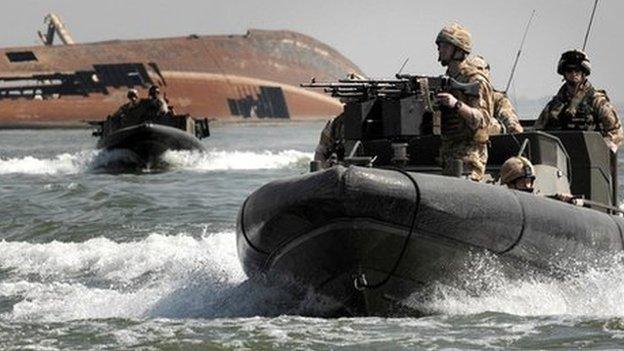
British marines on patrol in southern Iraq in 2007
MPs have reacted angrily to news that the official inquiry into the 2003 Iraq War will not be released until after the general election.
Inquiry chairman Sir John Chilcot said he could see "no realistic prospect" of publication before 7 May.
Deputy Prime Minister Nick Clegg said the delay was "incomprehensible", while former Conservative leader Iain Duncan Smith called it "disappointing".
Here's what you need to know about the Chilcot Inquiry.
1. What is it?
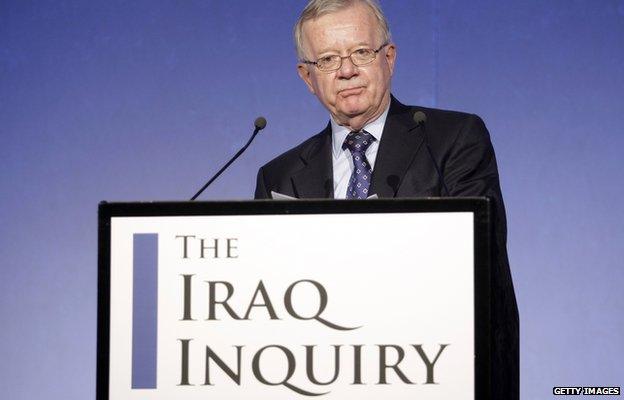
Sir John Chilcot led the report into the 2003 Iraq war
The Chilcot Inquiry is an independent investigation looking into Britain's role in the 2003 Iraq War.
It covers the period in the run-up to the conflict, the military invasion and then the aftermath of the conflict up until 2009.
The Labour government at the time, led by Prime Minister Tony Blair, agreed to British military involvement in the US-led invasion of the country.
The Conservatives backed British involvement in the war but the Liberal Democrats opposed it.
It was controversial because Tony Blair claimed to Parliament that intelligence reports showed Iraq had weapons of mass destruction but none of those weapons were ever found.
In 2009 Prime Minister Gordon Brown announced the inquiry to "learn the lessons" of the conflict in which 179 UK service personnel died.
It was to be led by Sir John Chilcot, a former civil servant.
2. Who gave evidence?
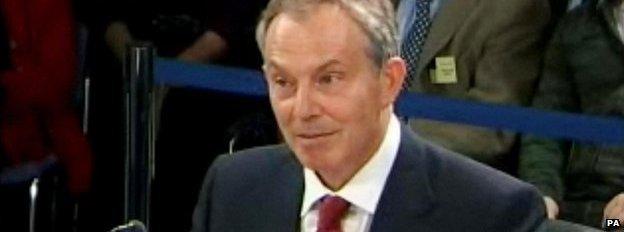
Tony Blair gave evidence to the inquiry in 2010
More than 100 witnesses gave evidence.
They included dozens of politicians, government advisers, civil servants and lawyers involved in the decision to invade Iraq.
One of the main witnesses was Tony Blair who gave evidence over two days in January 2010.
British ambassadors to the US and Iraq also appeared before the inquiry as well as UK intelligence officials and senior military officials.
Evidence began in 2009 and the last public hearing was held on 2 February 2011.
3. Why the delay?
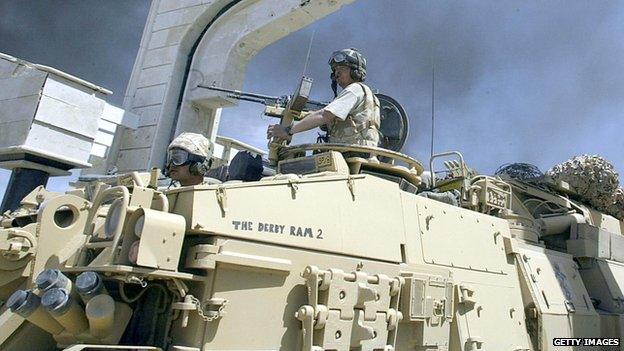
Despite almost four years passing since the inquiry's final public hearing, Sir John Chilcot has now confirmed it will not be published before the General Election in May 2015.
He says the delay is to give the opportunity for several witnesses to reply to criticism of them contained in the report.
Some witnesses claim they only received the documents regarding the criticism just before Christmas.
In order to try to protect their reputation, they are being given time to analyse the claims so that it can be effectively challenged.
4. The politics
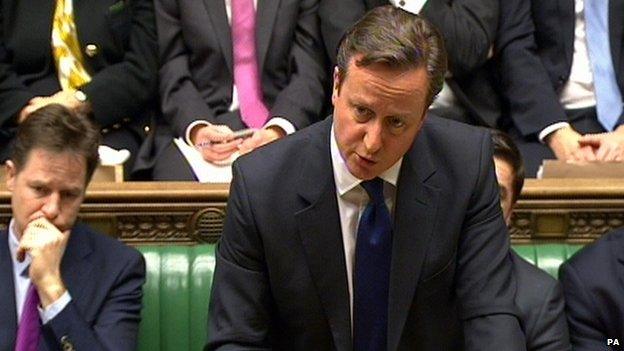
The PM has written to Sir John Chilcot to say he wanted the report published before the election
The delay of the report's publication until after the General Election is politically controversial.
There are claims the Labour Party is happy about the delay so that any criticism of the party's previous leaders won't distract from their campaign to win power in May.
The party says: "Labour established the Chilcot inquiry because it is crucial we learn the lessons of Iraq.
"While the timing is a formal matter for Sir John Chilcot we have always said the inquiry should report as soon as practically possible."
The Liberal Democrats, who opposed the invasion, say there are fears the report is being delayed while some of the evidence is "sexed down".
The Conservatives have also expressed their frustrations at the delay.
The Prime Minister has written to Sir John Chilcot to say he wanted the report published "well before" the election but that he understands it is important that the inquiry remains fully independent.
5. The cost
So far the inquiry has cost more than £9m.
The most recent expenses data shows it cost more than £1.5m in the 2013/14 financial year.
Follow @BBCNewsbeat , externalon Twitter, BBCNewsbeat, external on Instagram and Radio1Newsbeat, external on YouTube